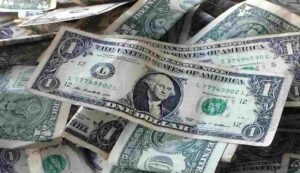JPMorgan: US dollar to remain soft, EM assets likely to benefit
New Delhi: According to a study by the American investment banking company JP Morgan, the US currency will continue to be weak this year, which should help Emerging Market (EM) assets.

“EM assets would benefit if the USD remained weak this year. The research states that “the big question is whether the last 15 years’ downtrend in EM and the strong USD could be ending.” Historically, EM has traded inversely to the dollar.
Investing in nations with developing economies is known as “emerging market” (EM) assets. These investments pose higher risks even if they have the potential to provide substantial profits.
In the past, the performance of the US dollar has often been negatively correlated with EM assets. The paper asks if the pattern of lower EM assets and a higher USD, which has been going on for 15 years, may stop.
The study predicts that the USD’s steady run from mid-April won’t endure long, which essentially indicates that it will fall versus other major currencies in the next quarters, mostly due to strengthening economic prospects outside of the US.
According to JP Morgan, EM currencies are also anticipated to stabilize in relation to the US dollar. Furthermore, a decrease in the likelihood of a recession can even cause EM currencies to beat the dollar.
“Within EM, we think China could be of interest, with CSI potentially catching up with H-shares, as well as India and Brazil,” states the research.
Moreover, one of the most important catalysts needed for EMs to move in a favorable direction is the de-escalation of trade uncertainties.
In terms of geopolitics, the United States and China have agreed to remove their previously declared reciprocal and counter-tariffs for the first ninety days. Both the US and China have lowered their tariffs on one another by 115% for the next ninety days.
The possibility of increasing US bond rates is another short-term concern that the study notes. The possibility of additional drastic tax cuts with high deficits may be the driving force behind this. EM assets may sometimes be under pressure from rising US bond rates.
“We recognize that in the near term the chances are that US bond yields move up, potentially driven by prospects of more aggressive tax cuts being attempted in the backdrop of elevated deficits and by the likely US inflation prints pickup on tariffs follow-through,” according to the study.
According to a recent Jefferies analysis, Asian currencies are expected to gain value over time relative to the US dollar. Additionally, it emphasized that growing Asian countries had far bigger gross national savings than the industrialized G7 countries, providing Asian economies with a solid basis for currency strength.